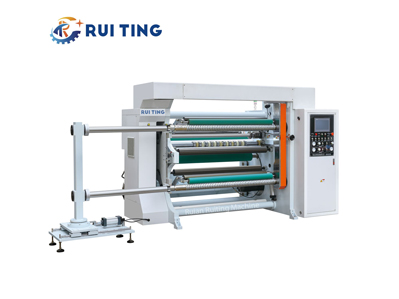Blog

Choosing the right slitting equipment is critical for keeping production smooth and maintaining consistent material quality. Whether you work with paper, film, or other flexible materials, aligning your actual needs with the machine’s capabilities saves time, cuts down on waste, and prevents operational headaches later on. Let me break down the key factors you need to focus on to make a solid decision.
In real-world use, different materials demand very different things from a Slitting machine. Thin films need gentle tension control—too much pull and you’ll stretch or tear the material. Thicker papers, on the other hand, usually require more durable blade systems to get clean, even cuts.
Before you pick a machine, first clarify what material you’ll be processing most often. Think through its thickness, flexibility, and surface properties—like whether it’s slippery or has a coating. A machine built for one type of material rarely works well for another, so confirming compatibility is always the first step.
Precision directly impacts whether your final product meets quality standards. If your work calls for tight tolerances, you need to zero in on features that boost accuracy.
Reliable tension control systems are a must—they keep the material stable during cutting, so it doesn’t shift or skew. Well-calibrated blade mechanisms matter too; they’re the reason cuts stay consistent. If a machine’s precision is hit-or-miss, you’ll end up with wasted material and extra rework—both of which slow down production.
Ease of use is a big deal, especially if your team has people with different skill levels. A good slitting machine should have clear, intuitive controls—no hunting through menus to find basic functions. Its setup process should also be straightforward, not overly complicated.
Daily adjustments shouldn’t feel like a chore either. If a machine is too complex to operate, you’ll spend extra time training staff, and you’ll likely deal with more mistakes. Ask yourself: How quickly can my team get comfortable using it? How fast can we switch between different jobs?
Whether a machine holds up long-term depends mostly on how easy it is to maintain. No equipment runs forever without upkeep, but some models are designed with maintenance in mind—others aren’t.
Look for small but important details: Are parts easy to access when you need to change blades or clean the machine? Does the manufacturer provide clear maintenance guidelines, with specific schedules and steps? If a machine needs frequent, complicated repairs, you’ll face costly downtime. Choosing a model that’s simple to maintain saves you a lot of hassle down the line.
The machine’s speed needs to match your daily output goals. A slow machine will create bottlenecks and make it hard to keep up with orders. But a high-speed machine that’s way faster than you need is a waste—you’ll burn extra energy without getting any real benefit.
Scalability matters too. Think ahead: If your order volume grows, or if you start working with new materials later, will this machine adapt? Picking a machine that can grow with your business means you won’t have to replace it anytime soon.
Choosing a Slitting machine isn’t about picking the most advanced or expensive option. It’s about finding one that fits your material needs, meets your precision standards, is easy to operate and maintain, and can keep up as your business grows.
If you still have questions about how to choose a Slitting machine, please consult our team and we can provide professional industry information.
Latest News
Exhibition 2023 labelexpo Asia
The 2023 labelexpo Asia show we participated in in December was a complete success. I am v...
Jun 14,2024
Slitting is a key manufacturing process cutting wide flexible materials (paper, films, foi...
Nov 28,2025
A flexo printing machine is a fast, versatile system that uses flexible plates and various...
Nov 14,2025
GET A QUOTE